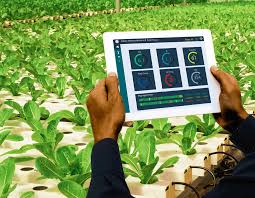Introduction
I was speaking to my brother recently. He doesn’t live in Nigeria anymore. We were talking about home, the state of things, and how—despite the chaos—we still carry Nigeria in our hearts. And somehow, our conversation found its way into one of the oldest professions in the world: farming.
It wasn’t just nostalgia. It was a concern.
You see, once upon a time, farmers were heroes in Nigerian communities. They fed entire cities, sent their children to school from harvests, and built modest wealth. Today, many of those same farmers have fled their lands—not because the soil went bad, but because men with guns came instead of rain.
We talked about the herdsmen crisis, kidnappings, and banditry. We talked about the North-Central and Middle Belt regions—Benue, Plateau, Nasarawa—where fertile farmlands have now become ghost towns. And with that, we asked: How do we, as Nigerians in the diaspora or Nigerians with means, invest in agriculture despite all this?
The Agricultural Collapse Behind the High Prices
Here’s the hard truth: a nation that can’t feed itself is a nation in trouble.
The National Bureau of Statistics reported that food inflation in Nigeria hit 40.01% in March 2024—the highest in recent memory. This isn’t just about global inflation. It’s a direct result of domestic food scarcity.
Why?
- Security breakdown in farming belts: Thousands of farmers have abandoned their lands due to violence. In 2021 alone, the International Crisis Group reported over 1,500 farmer deaths due to farmer-herder conflicts in North-Central Nigeria.
- Displacement of agricultural communities: The UNHCR noted that over 3 million people have been displaced across northern Nigeria—many of them subsistence farmers.
- Inadequate storage, transport, and access: Even when food is grown, getting it to market is a nightmare. Roads are bad, extortion is rife, and power for storage is unreliable.
So what happens next? Scarcity. And with scarcity comes price hikes.
But All Hope is Not Lost
Let me be clear: agriculture in Nigeria is still fertile ground. In fact, the crisis—grave as it is—creates new gaps for innovation, partnership, and purpose-driven investment.
So how can the diaspora engage wisely?
Partner with Trusted Agricultural Cooperatives
Not all farming investments are the same. The ones that work are the ones rooted in community and local knowledge.
One example is Thrive Agric—a tech-driven cooperative that connects investors to real farmers with traceable outcomes. In 2023, despite volatility, they supported over 500,000 farmers and secured produce across 20 states.
But smaller, faith-based cooperatives like God’s Treasury Cooperative Society (GTCS) are also bridging the gap between investors and the land—especially in safer zones. Here, it’s not just about money; it’s about mission.
Tip: Don’t invest in land you haven’t seen. Invest in cooperatives that have local governance, access to secure land, and insured projects.
Invest in Agro-Tech, Not Just Land
Buying farmland might feel romantic, but managing it remotely is a different beast.
Instead, consider:
- Cold storage tech
- Mobile irrigation
- Greenhouse farming
- Vertical farming in urban centers
- AI-powered yield tracking
Nigerian startups like Releaf Earth and Thrive Agric revolutionizing supply chains, especially in palm oil and cassava. These are not “side hustles.” These are systems with structure.
Focus on Safer Regions and Crops
All of Nigeria isn’t on fire. Some areas are thriving.
- Ogun, Oyo, and Ondo States have stable agricultural zones for cocoa, maize, and cassava.
- Edo and Delta remain fertile for palm oil and rubber.
- Ekiti and parts of Osun are developing controlled, cooperative-led farms with improved security through private arrangements.
Smart investors do two things: they diversify crops and choose zones based on local intel, not just headlines.
Leverage Scripture and Stewardship
We are children of God. But let’s not confuse faith with passivity.
Joseph in Egypt didn’t pray the famine away—he stored grain, managed logistics, and led with foresight (Genesis 41). The Proverbs 31 woman didn’t wait for a miracle—she “considered a field and bought it” (Proverbs 31:16).
Faith must wear work boots. Prayer must be paired with planting.
Set Up Investment Trusts for Farming Clusters

If you’re in Canada, the UK, or the US, why not form a small trusted group—5 to 10 families—and invest in:
- Poultry in Ogun State
- Fish farms in Anambra
- Greenhouses in Ekiti
- Rice mills in Kebbi (in partnership with locals)
You don’t need to run it. You just need the right:
- Local partners
- Legal protections (use trustee agreements)
- A clear MOU
- Ground reporting via trusted cooperatives like GTCS
This is how we become the help we keep praying for.
Prioritize Insurance, Data, and Visibility
Before you drop a dollar:
- Check for agricultural insurance through NAIC or private partners.
- Use platforms with transparent dashboards and data tracking.
- Get field visit reports, videos, or drone footage regularly.
- Verify titles, land use certifications, and cooperative registration with CAC.
Think Long-Term and Kingdom-Minded
This isn’t about fast returns. Farming is covenant work. Sometimes it’s slow. Sometimes it’s seasonal. But it is always seeded in impact.
As GTCS, we teach that every grain planted is a prophetic act. It’s a declaration that Nigeria will rise again—and that our people will eat from our own soil, not the spoils of another man’s land.
Final Thoughts: The Seeds We Sow Today
My brother and I didn’t end our conversation with despair. We ended it with resolve.
Yes, the challenges are real. But they’re not final. If people can plant in Israel’s deserts and grow olives in Morocco’s arid plains, we can plant in Nigeria’s chaos and still reap.
It takes wisdom. It takes partners. And yes, it takes faith.
But more than anything, it takes a decision: We will build again.


